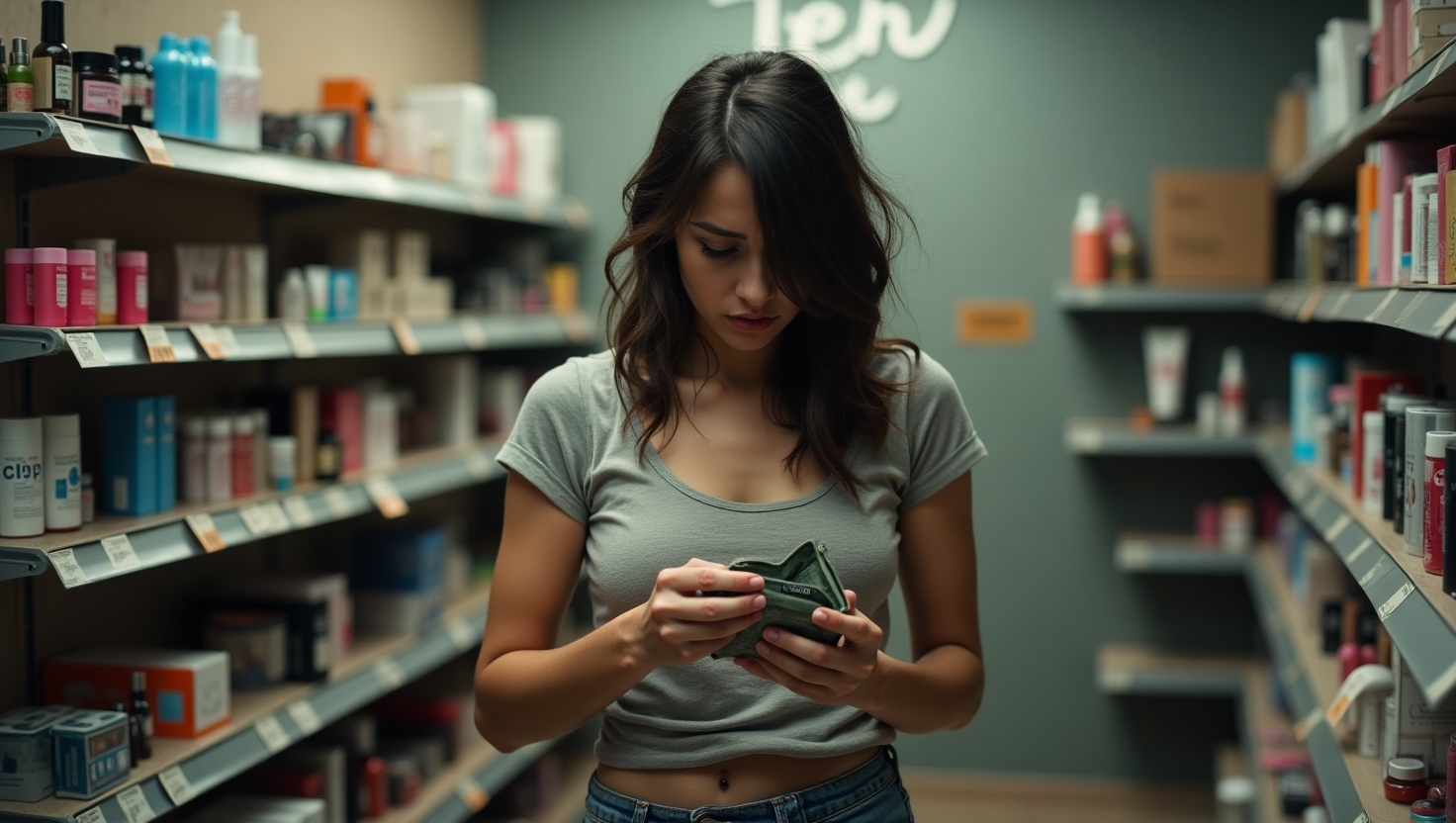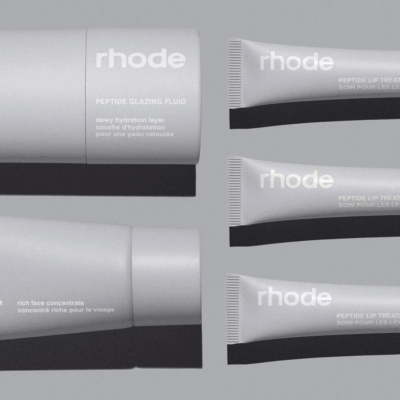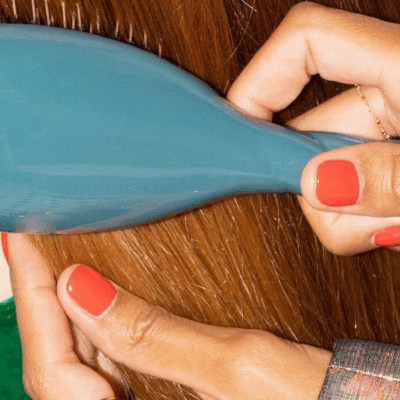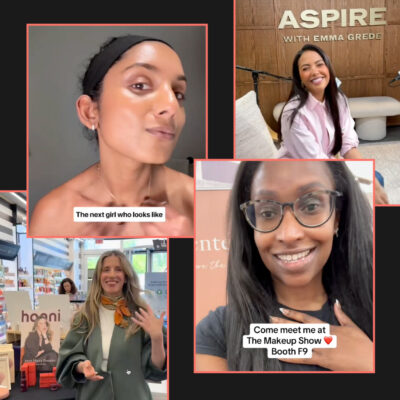
How Beauty Brands Are Recession-Proofing Their Businesses
In the first quarter, impacted by a surge in imports as businesses sought to get ahead of higher tariffs and a decline in government spending, American gross domestic product contracted. If GDP is down for two consecutive quarters, the United States will officially be in a recession before it celebrates its 249th birthday.
In April, J.P. Morgan put the probability of the country entering a recession this year at 60%. According to an analysis of earnings by FactSet cited in The New York Times, executives discussed “recession” in 30% of first quarter earnings calls, up from 3% the previous quarter. Business optimism slipped in March, and Americans’ consumer confidence plummeted to a 5-year low the prior month.
However, the economic picture changed dramatically Monday, when the American and Chinese governments announced they reached a deal to reduce tariffs. The tariff rate on Chinese imports has been decreased to 30% from 145%, at least for 90 days, sending the stock market up and calming panic among companies across the U.S.
Despite the trade wars, there are several signals that the U.S. economy is relatively healthy, including a slowdown in inflation growth, minimal unemployment and rising wages. American employers continue to add jobs—185,000 in March and 177,000 in April—while the unemployment rate has remained steady at 4.2%.
As beauty entrepreneurs and executives guide their businesses during this uncertain period, for the latest edition of our ongoing series posing questions relevant to indie beauty, we asked 20 of them the following: What business preparations are you making for a possible recession? Are you doing anything for consumers facing an economic downturn?
- Reginaldo Torres Founder, Dabalash
Planning and prevention are key. We always maintain at least six months of inventory so we can continue producing and selling at the same cost, giving us time to renegotiate with suppliers or gradually adjust prices if needed. This buffer helps us avoid costly, reactive decisions. We also rely on a well-planned annual promotions calendar that allows us to anticipate the number of deals we’ll offer, often leading to lower margins but increased revenue volume.
Additionally, we secure contracts with influencers, celebrities and media partners at least six months in advance for promotional campaigns. This approach gives us flexibility to pivot our strategy without increasing budgets if revenue goals fall short. One advantage of being in the beauty industry is its relative resilience during economic downturns, making it one of the most stable sectors to weather a recession.
- Kate Chen Founder, Akar Skin
We're staying closely attuned to the evolving economic landscape, but we’re not making broad assumptions. Instead, we’re evaluating on a case-by-case basis and adjusting thoughtfully where needed. For us, it’s about staying nimble, managing costs wisely while continuing to deliver value and performance to our customers.
We also understand that people are being more intentional with their spending. While we don’t run discounts often, we are exploring ways to make the brand more accessible, whether that’s through sampling, discovery-size formats or bundling hero products to offer a more compelling entry point.
At the same time, we’re doubling down on education and storytelling to help customers understand the value behind each product, from formulation to sustainability.
- Nichola Gray Co-Founder and CEO, Kate McLeod
We’re approaching the possibility of a recession with both caution and confidence. On the business side, we’re tightening our belts and running detailed scenario planning to stay prepared. At the same time, we saw phenomenal YoY growth in Q1 and are continuing to see strong momentum in Q2, so we’re trying to ride the wave and scale marketing spend efficiently when the opportunity arises.
For our customers, our strategy remains steady. We’re not planning major price increases or deeper discounting. We believe in delivering a high-quality product that works. Moments of self-care often carry more meaning during uncertain times. Our goal is to continue offering a little magic—products that bring joy, comfort and nourishment when people need it most.
- Anna Dzhilavyan Co-Founder, Bur Bur
As we brace for economic uncertainty, we’ve adopted a much more disciplined approach to inventory, only purchasing what we’re confident will sell through. While this strategy helps protect our bottom line, it does come with trade-offs like repeatedly being sold out of products that are in high demand, which can affect customer experience and overall company growth.
We’re also thinking carefully about how to support consumers during a downturn. That includes testing bundle models, offering travel-sized or trial versions of products and shifting our messaging to focus on value, quality and longevity. It’s not just about weathering a recession, it’s about staying connected to our community and being mindful of how we show up for them.
- Lena Chao Founder, Clean Circle
As a founder, I think about recession-proofing in two ways: how we stay resilient as a business and show up meaningfully for our customers during uncertain times. Internally, we've streamlined our operations to stay lean and nimble. We're prioritizing bestsellers and placing smaller, more strategic inventory orders.
We're also doubling down on high-performing retail relationships, increasing in-store activations and staff education and pulling back on anything that doesn't generate a clear return.
At the same time, I'm very aware that our customers are also feeling the pressure. Many are juggling wellness goals with tighter budgets, so we're adapting. That means bundling our most-used products to offer more value or creating smaller, lower-commitment sets. We're also being intentional about our messaging like our products are most cost-friendly when broken down to per-usage cost.
If a recession does hit, brands that are transparent, trustworthy and able to pivot without losing who they are will weather it.
- Glynn Pogue Co-Founder, Blue Water Girls
As a new, bootstrapped business, we’ve always operated with a lean, thoughtful approach of crawl, walk, run. That mindset is serving us well as we prepare to weather potential economic uncertainty. We're staying nimble, watching our margins closely and making deliberate choices to ensure long-term sustainability without compromising our brand value.
While we’re mindful not to rely too heavily on discounting, which can devalue a brand over time, we are introducing smart pricing strategies to support both our business and our customers. As we expand our product line, we’re focused on value-driven bundling, gifts with purchase (GWP) and limited-time offers during key shopping moments. These tools allow us to reward and retain our community without undermining the premium, intentional nature of our products.
We also know that, during tough times, consumers are more discerning with their spending. That’s why our marketing continues to center on education, transparency and the long-term benefits of investing in clean, effective skincare. We’re not chasing flash sales, we’re building trust and loyalty through consistency and care.
This approach allows us to stay true to our mission while adapting to the moment, and we believe that’s what will carry us through, no matter the economic climate.
- Sahar Rohani Co-Founder and CEO, Soshe
Soshe is proactively maintaining, and where possible, reducing prices to remain accessible as consumers become more cost-conscious. We’ve leaned into building a healthy level of safety stock of all key components to avoid disruptions and to ensure stable pricing, even if supply chain volatility increases.
Additionally, our refillable designs already offer 20% to 30% cost savings when repurchasing refills and so we’re also further educating customers more on the benefits of refills beyond sustainability.
Luckily, makeup is a resilient category. During economic downturns, we naturally turn to affordable luxuries. With that in mind, we’re refining our messaging to focus on value, versatility and long wear.
We’re also exploring sets, smaller sizes and sampling opportunities to give customers flexibility and easy entry points into Soshe without compromising performance or experience.
- Cleo Davis-Urman Co-Founder and CEO, Barrière
As we navigate the uncertainty of a potential recession, Barrière is committed to ensuring that wellness remains accessible. We’re prioritizing both affordability and consumer well-being by keeping our prices low, making it easy for consumers to maintain their wellness routine without breaking the bank. This price point is part of our ongoing effort to meet consumers where they are especially during times when budgets may be tighter.
Additionally, by expanding our retail presence into stores like Walmart, our products are even more accessible to a wider audience. In these larger retailers, we ensure that more people can access our products in their everyday lives.
No matter the economic environment, we want our consumers to feel well inside and out without the stress of high costs. These efforts reflect our core mission: to make wellness simple, convenient and accessible for everyone.
- Jill Rowe Founder, Cultivate Apothecary
My advice would be—and I'm taking it myself—to double down on your connection to your existing customers and truly wanting to find out how best to take care of them. Is it in outreach? Personalized, educational emails that are not just about selling product? Subscriptions or loyalty programs that reward return customers with complimentary products or access to their favorite products at a discount?
I also think it will give brands an opportunity to not only pause and consider deeply what their next steps should be, but also I find, when you have to tighten your belt, you find clarity. You don't go after every new marketing trend or spend money just because you have it. You think about what you ultimately want to do in order to best care for your customers and your company. I believe there will be a narrowing of focus on what works and putting more effort into those channels.
- Zepha Jackson Founder, Standard Procedure
We’re staying lean and focused. We’ve always run a tight operation, so the idea of being cautious with spending and strategic with growth isn’t new to us. It’s how we’ve always worked. Right now, that means prioritizing our hero products, being selective with channel expansion and doubling down on what’s already working.
We’re also focused on building deeper customer loyalty and repeat purchase rather than chasing growth at any cost. If a recession hits, we want to be in a strong position with a loyal customer base, efficient operations and a valuable brand people are excited to be a part of.
We’re focused on keeping our products and marketing accessible and relatable. Standard Procedure is a premium-quality sunscreen that doesn’t break the bank. It holds its own against prestige brands, but with a more approachable price point and is designed to be used by everyone every day.
We’re also leaning into value-driven formats like our 60-ml. keychain sunscreen and creating bundle options so customers can stock up and save. It’s about making sun safety easy, reliable and worth coming back to.
- Jasmina Aganovic Founder, Future Society
We believe recessions reveal what truly matters to people. For our customers, that continues to be self-expression, science-backed beauty and emotional storytelling. We’re leaning into messaging that centers identity and emotional benefit, not just luxury.
Operationally, we’re focused on staying agile. That means prioritizing core SKUs, delaying lower-priority innovation and testing bundles, travel sizes and thoughtful promotions. These offer meaningful ways for customers to stay connected to the brand, without compromising its value, even in harder times.
- Heather Rogers Founder and Dermatologist, Doctor Rogers
We’re preparing for a potential recession by staying lean and focused—keeping SKUs tight and avoiding overproduction. For consumers, we’re offering more value while staying true to our brand. For example, our Mother’s Day focus is on curated sets that deliver savings without discounting core products.
Education is another key strategy. In uncertain times, consumers want products that work, products they can trust to justify the spend. We continue to provide dermatologist-, clinical-based education to help people make more confident choices. Our brand has grown stronger during the constant challenges of the past five years because we deliver products that many, like me, consider essential.
- Tracey Hicks-Kearse Founder, CEO and Chief Chemist, Acarre
Anticipating a possible recession requires strategic planning to ensure business resilience and maintain consumer trust. Acarre has implemented several measures to prepare for economic downturns.
Business Preparations
Cost Optimization: We have conducted a thorough review of our operational expenses, identifying areas where efficiency can be improved without compromising quality.
Flexible Pricing Models: Introducing smaller product sizes at lower price points allows consumers to access our products during tighter financial times.
Consumer-Focused Strategies
Value-Driven Marketing: Emphasizing the quality and longevity of our products in marketing messages helps consumers see the value in their purchases.
Promotional Offers: Developing targeted promotions and loyalty programs to maintain customer engagement and encourage repeat purchases.
By proactively adapting our strategies, we aim to navigate potential economic challenges while continuing to meet consumer needs and uphold our brand values.
- Liz Folce Founder and CEO, Nakery Beauty
The tariff situation definitely is bringing its challenges, but we’re also seeing some new possibilities come forward—different suppliers we might not have contacted before, new concepts to help reduce cost and waste, etc. I’m actually hopeful that we’ll find innovation in the midst of the chaos.
We’re assessing all of our expenses and considering ways that we can reduce or eliminate so that we can maintain our current retail pricing or even go lower. We’re creating more value opportunities on seasonally appropriate items.
And we’re looking at our innovation pipeline to make sure what we are bringing forward is truly addressing consumer wants and filling white space.
- Marissa Abraham Head of Marketing, LilyAna Naturals
We are optimizing supply chains and offering value-driven options like larger sizes and bundles to help consumers during an economic downturn. Our marketing emphasizes product longevity and self-care, aiming to support customers while maintaining business resilience.
Our manufacturing advantage is strengthened by having production take place directly at our warehouse in Mississippi, allowing for continued control and efficiency.
- Jack Jia Founder and CEO, Musely
This is something we’re actively discussing at the executive and board level. With ongoing uncertainty in economic policy, we’re staying focused on what we can control: operating with discipline, agility and intention. Efficiency has always been a core part of our model, not just in how we manage costs, but in how we deliver care. That foundation gives us a real advantage in volatile times.
We're also thinking carefully about how to support our patients during a potential downturn. Access and affordability have always been central to our mission, and that becomes even more important now. We’re exploring ways to offer more flexible promotions, smarter subscription options and clearer messaging around value because prescription care shouldn’t feel out of reach when it’s needed most.
- Lindsey McCoy Co-Founder and CEO, Plaine Products
At Plaine Products, customer education is central to our strategy, especially because our forward-thinking circular model requires explanation. We cover the cost of returning empty bottles for reuse, and our aloe-based formulas are concentrated, meaning customers can use less and extend the product’s life by adding water in the shower.
We showcase our products' versatility, conditioner doubling as shaving lotion, body wash used for bubble baths, nine different uses for our beauty oil, helping to reduce the typical overconsumption encouraged by the beauty industry. We offer products the entire household can use—products are safe for babies and strong enough for parents—as opposed to creating specific niches that result in a shower full of products.
We also take customer feedback seriously. A year ago, we introduced gallon-sized bulk options for those seeking value and less packaging, especially where local refill stations aren’t accessible. They have become popular options and we've seen other starting brands starting to follow our lead.
Based on these efforts, we’ve built a loyal customer base through transparency about our ingredients, process and values. Our subscription retention is strong, and word-of-mouth continues to grow. While we take concerns about a recession seriously, we don't consider our brand or our products luxury items, we aim to be a consistent part of the household budget, even in times of uncertainty.
- Dana Stewart Founder, Mad Hippie
We are continuing to offer results-driven, clinically tested, clean skincare products at an affordable price and are always expanding our deluxe-sized offerings so customers can try out our line for an even more affordable price point.
- Tim Hollinger Co-Founder, Bathing Culture
We’re constantly asking ourselves, “Would I be able to buy that?” That mindset helps us make more empathetic decisions, especially when pricing and positioning products. We’ve also been pulling our retail partners closer, asking what they need and what their customers are saying and using that feedback to guide how we shape the line.
Over the past year, we’ve taken several steps to brace for continued instability, economic or otherwise. We left our San Francisco HQ, paid down debt, trimmed lower-margin SKUs and bought key raw materials in bulk to help manage cost volatility.
We’re adjusting marketing messages and keeping our assortment flexible so we can respond as quickly as possible if customer habits shift. We’ve learned that you can’t predict the next curveball, but you can build systems and relationships that help you stay standing when it comes.
- Christin Powell Co-Founder, Kinship
We’re proactively taking steps to safeguard our business and support consumers. Internally, we’ve adjusted inventory planning, streamlined operations and refined marketing efficiencies to remain agile. For consumers, we’re introducing value-focused offerings, including smaller size SKUs at lower price points and curated bundles that maximize affordability.
Our messaging has also evolved, highlighting product longevity, clinical efficacy, multipurpose usage and unique ingredient stories to reinforce the value of investment. While we can’t predict economic conditions, we’re committed to maintaining accessibility and trust for our community.
If you have a question you'd like Beauty Independent to ask beauty brand founders and executives, send it to editor@beautyindependent.com.






Leave a Reply
You must be logged in to post a comment.